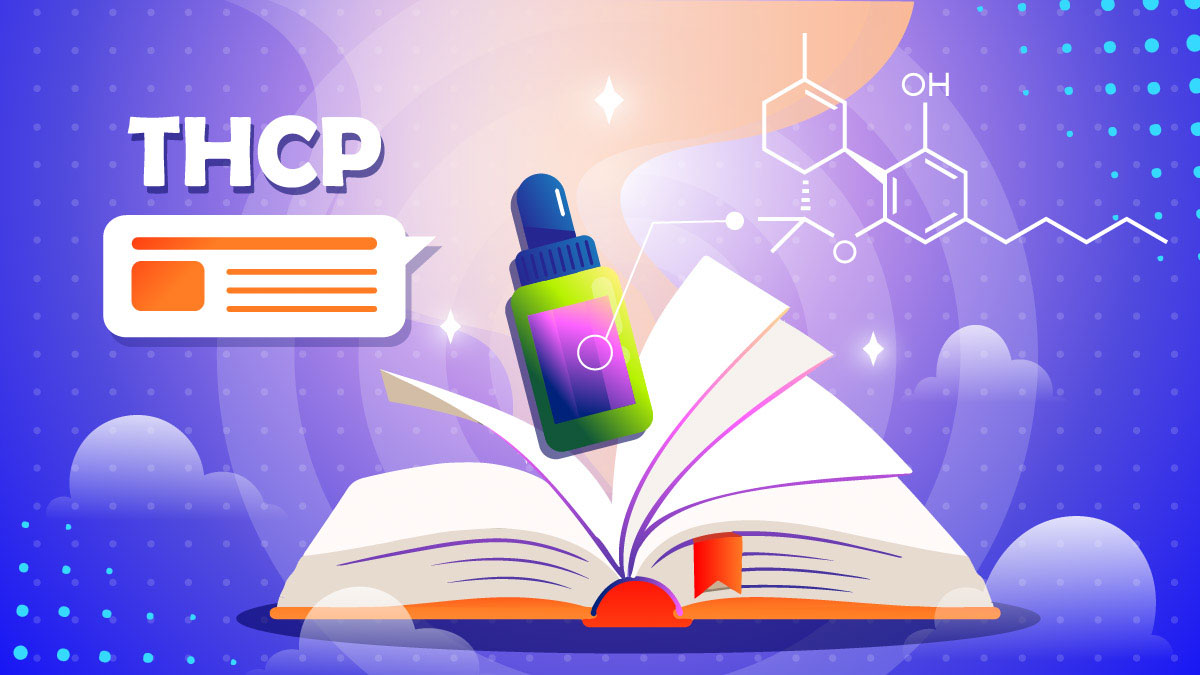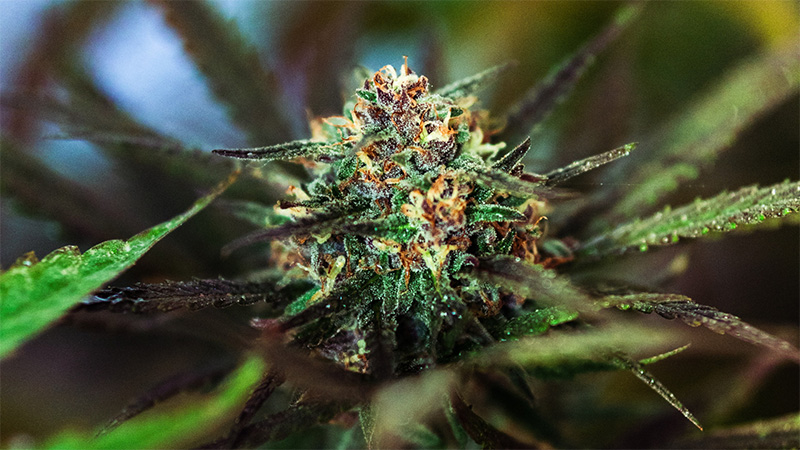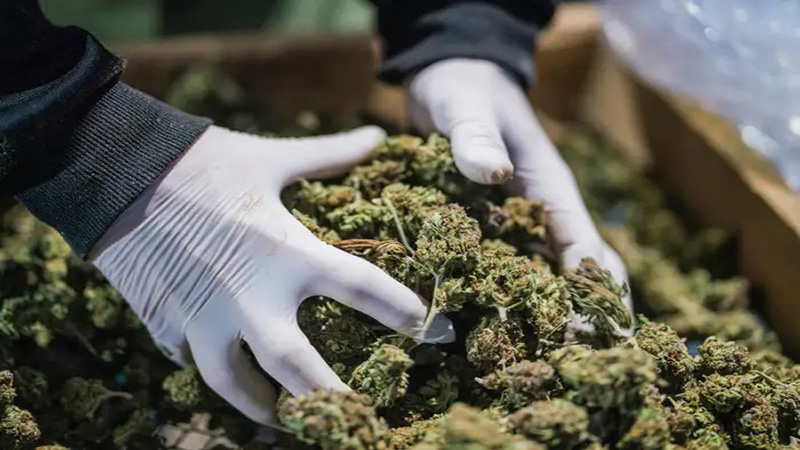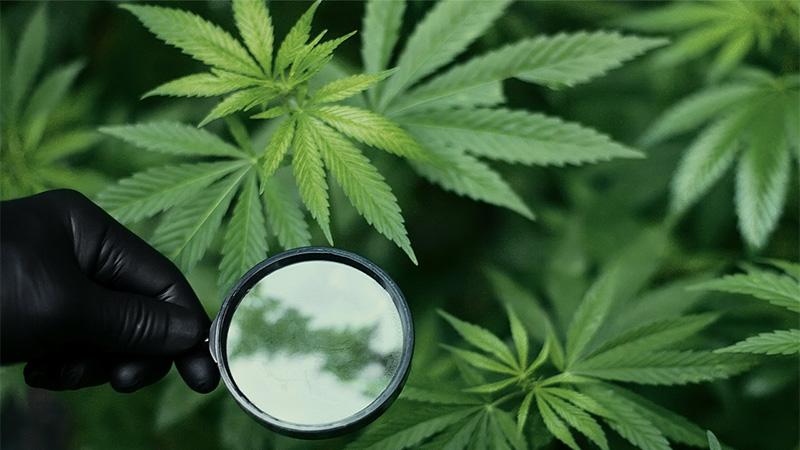What Is THCP? Benefits, Effects and Uses

If you’re reading this, you’re probably familiar with delta 9 THC – the main psychoactive compound in marijuana.
You may also know what delta 8 and delta 10 are because they’ve gotten pretty popular over the last two years; they’re slightly different from delta 9 but come with similar psychoactive effects.
In fact, there are a bunch of different types of THC. Some of them are milder, and others can pack a serious punch.
In this article, we shed light on the most potent analog of THC – THCP – a cannabinoid allegedly 30 times more potent than conventional delta 9 THC from marijuana.
What is THCP?
THCP is an abbreviation for tetrahydrocannabiphorol. It’s a newly discovered cannabinoid that doesn’t have much research (if any) to back up its medical benefits. The only studies conducted so far related to assessing its safety and potency on animal models and in vitro cell cultures.
Here’s what we’ve learned so far.
THCP is a naturally occurring cannabinoid in cannabis plants. However, living plants only produce a small concentration of this compound. It can be extracted and separated from other cannabinoids from hemp and marijuana using chromatography methods.
THCP has a strong affinity – 30 times stronger than THC, to be precise – to CB1 endocannabinoid receptors, which gives it remarkably strong psychoactive effects.
When Was THCP Discovered?
THCP was discovered in 2019 by accident (1 A team of Italian researchers conducted a study where they used advanced mass-spectrometry and liquid chromatography on natural cannabis samples delivered by the Military Chemical Institute in Florence, Italy.
The analysis allowed the researchers to dive into the chemical makeup of the plant matter. During this process, THCP was found by a total accident.
Scientists Also Discovered CBDP
The research team also revealed another cannabinoid, CBDP, alongside THCP. It’s a cannabinoid with the same number of hydrocarbon chains as THCP.
However, very little is known about CBDP. Researchers don’t consider it an important cannabinoid because CBD itself has little affinity with CB1 receptors.
Following that mechanism, it’s unlikely that the extra two chains will increase the likelihood of binding to cannabinoid receptors.
So far, there’s been no research on the properties of CBDP at all.
Is THCP Natural?
Yes, THCP is one of the 140 phytocannabinoids produced by cannabis.
However, natural levels of THCP are measured below 0.1%; some plants, such as the aforementioned sample from the Italian study, contain almost 0.1% THCP.
In contrast, THC can be found in concentrations of up to 30% in marijuana and around 0.3% or less in hemp.
CBD from hemp usually reaches 10% for high-quality plants, but in specifically-bred marijuana strains, it can be as high as 15%.
How is THCP Extracted?

Since THCP occurs in hemp in negligible concentrations, researchers need to convert it from other cannabinoids in order to study it further.
There were no papers reporting on the extraction method to achieve usable amounts of THCP until 2019. Later on, this process was adapted and developed to fit the manufacturing process that’s common for other isomers of THC, such as delta 8 or delta 10.
Manufacturers use CBD as the starting material to produce THCP – meaning it can be effectively sourced from hemp.
Do Cannabis Plants Synthesize THCP Naturally?
Yes, but again, these are very low concentrations.
All cannabinoids in marijuana and hemp plants, including THC, CBD, and THCP, stem from cannabigerolic acid (CBGA).
We’re not going to have a chemistry class here, so let’s make it as simple as possible.
CBGA interacts with enzymes from other acidic molecules in cannabis to create a precursor compound for THCP known as tetrahydrocannabiphorolic acid (THCPA).
Just like THC derives from THCA and CBD from CBDA.
To activate THCPA and turn it into THCP, you need to apply heat – this process is called decarboxylation.
Is THCP Legal?
Yes and no.
According to the International Convention on Psychotropic Substances, delta 9 THC is the only illegal cannabinoid.
So theoretically speaking, THCP is internationally legal.
However, its legality in the USA is slightly different than in other parts of the world.
Here, THCP is legal as long as it comes from hemp.
But this would make life too easy for cannabis users, so the actual legal status of THCP is in limbo.
Although federally legal, THCP can be subject to different regulations in individual states.
So far, THCP isn’t mentioned on any state bill, but you can assume it’s illegal in states that have banned all forms of THC.
THCP is most likely illegal in these states:
- Alaska
- Arizona
- Arkansas
- Colorado
- Delaware
- Hawaii
- Idaho
- Illinois
- Iowa
- Kentucky
- Louisiana
- Maryland
- Massachusetts
- Michigan
- Mississippi
- Montana
- Nevada
- New York
- North Carolina
- North Dakota
- Oregon
- Utah
- Vermont
- Washington
Interestingly, some of the above states have legalized the recreational use of marijuana, but they don’t want to dive too deep because THCP and other isomers of delta 9 THC aren’t as well researched as the original compound.
Always check with your local state laws before buying THCP online.
What’s the Difference Between THCP vs. THC?
THCP and THC have strikingly similar chemical structures, with one important difference: the length of their alkyl side chain.
THC’s chain comes with five carbon atoms, while THCP has seven carbon atoms on its chain.
The difference may seem minor, but when you closely examine it, THCP turns out 30 times more potent than THC because it has 30 times higher bonding activity with CB1 receptors in the brain.
What Does THCP Feel Like?

Those who tried THCP describe the effects as a stronger version of THC. It gives an almost psychedelic experience, so you need lower doses to experience the same effects as with THC.
As mentioned earlier, the research on the effects of THCP is scant, but what’s certain is that THCP boasts much higher potency than delta 9.
From the biological standpoint, THCP is 30 times more active, giving it proportionately stronger effects.
Bottom line? The dose of THCP and THC is going to be significantly different.
If you’re sensitive to the psychoactive nature of THC, you’ll need to tread lightly with THCP because it’s even more likely that you’ll experience undesired effects such as anxiety, racing heart, memory impairment, or paranoia.
How Does THCP Work?
Like all cannabinoids, THCP works by engaging with your body’s endocannabinoid system (ECS).
The ECS comes with two types of receptors: type 1 (CB1) and type 2 (CB2) receptors.
CB1 and CB2 are responsible for different effects on the body and brain.
CB1 receptors mostly occur in the nervous system and are responsible for the psychoactive effects of THC, while CB2 receptors can be found in the immune system and peripheral organs.
Similar to THC, THCP is a strong CB1 agonist, meaning it gets you high if you provide enough stimulation to the receptor.
How to Take THCP
THCP is less common than THC, CBD, and other cannabinoids, but you can expect the situation to change in the near future.
THCP can be extracted and infused into a variety of formats, including tinctures, gummies, capsules, vapes, and even topicals.
Most companies that are selling THCP right now offer it in the form of vape pens.
Does THCP Get You High?
Yes. It’s a much stronger high than what you get from THC.
THCP has an almost identical effect profile to THC, according to those who have already tried it. However, these people also say THCP should be used in lower doses than THC to avoid the aforementioned side effect.
While there’s little research supporting the medical benefits of THCP, anecdotal reports speak one voice: that THCP may alleviate similar symptoms.
THCP vs. Other Cannabinoids

Here’s a brief overview of how THCP compares to other versions of THC.
THCP vs. Delta 8 THC
THCP is roughly 60 times as strong as delta 8 THC.
The effects of both cannabinoids are very different. Delta 8 is more relaxing and gentle with different health benefits, while THCP can stimulate your brain a lot.
This increases the risk of side effects, such as paranoia, insomnia, rapid heart rate, and anxiety.
Delta 8 THC is milder and far more mellow. It’s unlikely to make you anxious or negatively affect your sleep quality.
In theory, there’s also a delta 8 version of THCP too, but there’s no information on how it works in comparison with delta 9 THCP.
THCP vs. Delta 9 THC
Both cannabinoids have a similar effect profile – the only difference being their potency.
The normal dose of delta9 THC is around 10 mg, while the same normal amount for THCP is around 0.3 mg; you don’t even need a full milligram of THCP to get high.
For that reason, THCP is much more likely to cause side effects than conventional THC products.
THCP vs. Delta 10 THC
Delta 10 THC is known for its nootropic properties; it’s more stimulating than delta 8 THC and delta 9 THC, but it doesn’t get you high in an uncomfortable way.
While THCP has a great impact on headspace and will really alter your mental capacity to learn and work – delta 10 THC can enhance your cognitive function in low to moderate doses.
THCP vs. THC-O
THC-O is another strong cannabinoid. It’s about 3 times as potent as delta 9 THC.
The main difference between THCP and THC-O is their source; while THCP is naturally occurring, THC-O is 100% synthetic. They also differ in onset time; THCP kicks in right away after consumption, and THC-O has a slight delay.
THCP vs. HHC
HHC stands for hexahydrocannabinol and is another new discovery in the world of cannabinoids.
It’s a hydrogenated form of THC, meaning it has a solid structure and longer shelf life. The effects of both cannabinoids are very similar, but HHC is slightly less potent. You may need an extra two puffs on an HHC vape to reach the same type of effects compared to delta 9 THC.
THCP is over 60 times stronger than HHC, so a little goes a pretty long way.
So What Is THCP?
THCP is the effect of the latest advancements in cannabinoid science.
Although research is limited, preliminary studies and anecdotal reports state that THCP is a stronger, legal analog of delta 9 THC.
THCP products are rare right now because of the difficulties in the manufacturing process, but the lucky few who have already tried it report that it feels like taking THC – but you shouldn’t dabble with high doses.
We’re excited about the future discoveries in the cannabinoid space. It’s amazing how we went so fast from having 115 cannabinoids to 140 and still counting.
Did you have a chance to try THCP? What’s your take on this novel cannabinoid? Let us know in the comments!
Sources:
- Citti, C., Linciano, P., Russo, F. et al. A novel phytocannabinoid isolated from Cannabis sativa L. with an in vivo cannabimimetic activity higher than Δ9-tetrahydrocannabinol: Δ9-Tetrahydrocannabiphorol. Sci Rep9, 20335 (2019). https://doi.org/10.1038/s41598-019-56785-1 [1]